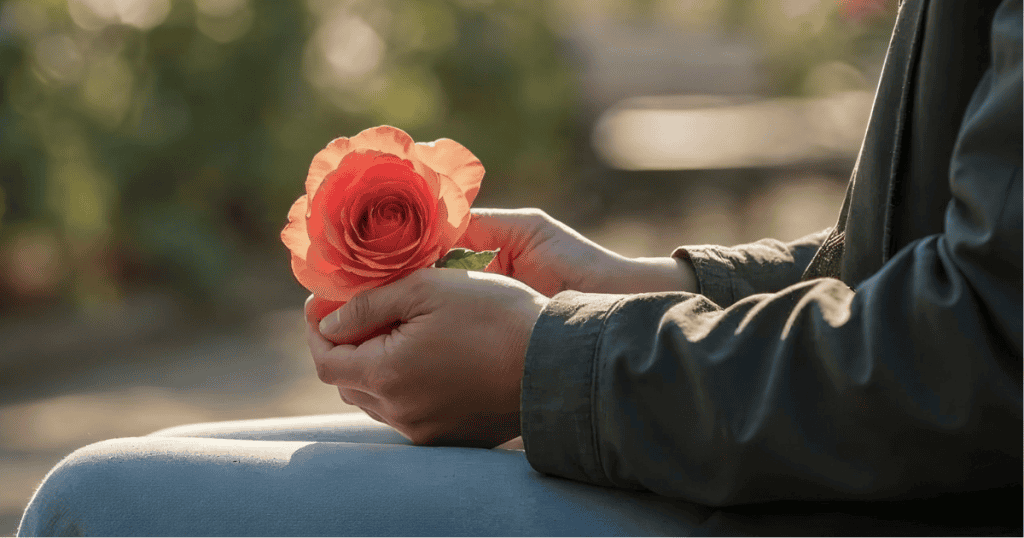Narcissists drain joy and twist reality, leaving survivors unsure of everything they once believed about themselves.
For years, I lived under my mother’s relentless criticism, my sister’s subtle manipulation, and my brother’s explosive moods.
Even when I finally went no contact, silence didn’t feel like freedom.
I remember one evening standing in my living room, staring at the empty walls, and realizing I didn’t even recognize myself anymore.
Happiness felt alien, like a word I had once known but had lost entirely.
Then, I stumbled across research.
Not vague self-help advice, but research-backed studies proving the brain can heal, resilience can be rebuilt, and joy can return.
Happiness stopped being a distant dream.
It turned into a choice I could defend every day.
I discovered nine evidence-backed strategies that acted like tools for reconstructing a life shattered by narcissists.
Each one taught me how to retrain my mind, reclaim my identity, and reclaim control.
These nine strategies became my roadmap.
They helped me transform emptiness into energy, isolation into connection, and fear into purpose.
They aren’t just ideas. They are survival tools proven by science.
Table of Contents
9 Positive Psychology Findings That Rebuild Life After Narcissists

Recovering from narcissistic abuse isn’t about forcing positivity or pretending the past didn’t happen.
It’s about using proven strategies to retrain your brain, rebuild your nervous system, and regain control of your life.
Each of the following findings helped me do exactly that, transforming despair into resilience and strategy.
Strong Bonds Extend Your Life
After years of my mother manipulating every family interaction, she managed to turn me against my toxic siblings.
I ended up feeling isolated even among relatives.
My aunt subtly questioned every decision I made, ensuring I doubted myself constantly.
One afternoon, I drove to my dad’s house to meet cousins from my mother’s younger brother.
I hadn’t seen them in years, and yet the warmth they offered was immediate.
Around the dinner table, we laughed over stories free of drama or judgment.
For the first time in decades, I felt a safe sense of belonging.
It was like coming up for air after being trapped underwater.
Harvard’s 80-year study confirms that supportive relationships are the single strongest predictor of happiness and longevity.
For survivors of narcissistic families, connection isn’t weakness.
It’s a shield against isolation, a reminder that safe, nurturing bonds exist outside the toxicity we endured.
Rebuilding these bonds was slow.
First, I had to trust my judgment again.
I learned to distinguish manipulation from care.
I started small: a phone call, a text, a coffee meetup.
Each connection was a brick in rebuilding a sense of self that narcissists had tried to erase.
Gratitude Is a Real Antidepressant

One night, the guilt hit hard.
My narcissistic sister texted a barbed comment about my “failures.”
Minutes later, my toxic brother’s tone over the phone pulled me right back into their emotional crossfire.
I felt heavy, consumed by guilt and shame.
On impulse, I grabbed a notebook and wrote down three things I was grateful for:
- My husband brewed coffee for me that morning.
- My cousin sent an encouraging text.
- The quiet of my home after years of chaos.
That simple act shifted something deep inside.
Research shows that gratitude journaling can increase happiness by 25% in just 10 weeks. It reduces stress and depression.
Gratitude shifted my energy from obsessing over what narcissists stole to recognizing what freedom and safety now offered.
Each note became a tactical anchor. A daily reminder that I was no longer defined by their cruelty.
I started noticing more moments that matter.
The smell of rain on the pavement, a message from my dad checking in, and the laughter of my husband and son.
Gratitude didn’t erase pain, but it reminded me that joy could exist even when the past tried to claim me.
Kindness Is a Shortcut to Feeling Better
After a particularly exhausting week of my narcissistic brother lashing out over trivial things, I felt hollow.
I decided to bake cookies for a neighbor who had recently lost her father.
When I handed them over, the relief hit me immediately. A warmth I hadn’t felt in years.
Science explains that acts of kindness release oxytocin, lower stress, and strengthen social bonds.
For narcissistic abuse survivors, kindness is strategic.
Every generous act disproves the narrative narcissists instilled: that we are selfish, cold, or incapable of love.
Even while broken, we can choose generosity, proving to ourselves that our identity is ours to define.
Small acts of care are victories, tiny rebellions against the belief that abuse can dictate our worth.
Flow States Bring Fulfillment

One evening, after my toxic mother’s constant critiques over a decision, I retreated to painting.
Hours slipped away unnoticed. The canvas became a sanctuary.
This is flow. A complete immersion where time disappears, and joy quietly returns.
A 2022 study shows flow protects against burnout and depression.
In the healing journey, flow becomes tactical for survivors, teaching the brain that creativity and focus can outmatch hypervigilance.
After years of scanning every interaction for danger, flow reminded me that deep engagement is not only safe but healing.
Input Becomes Identity
Years of toxic commentary from my narcissistic mother and siblings had conditioned my inner voice to scream, “You’re not enough.”
Silence felt unsafe and hollow.
I deliberately filled my life with empowering audiobooks, podcasts, and survivor communities.
Slowly, my thoughts shifted, my inner critic softened, and I began reclaiming my identity.
Science supports this: our brains adapt to the information we consume.
Narcissistic abuse survivors can curate input to reshape perception and reset their “normal meter.”
By choosing what we listen to, read, and watch, we create mental armor that strengthens our sense of self.
My mornings now start with affirmations, resilience podcasts, and research-backed mental health content.
This steady routine helps me reclaim my narrative.
Optimism Makes You Healthier

Choosing hope over despair wasn’t easy.
Each time I predicted disaster or feared my narcissistic family’s reaction, my body tensed.
I’d have headaches, tight shoulders, and shallow breaths.
But slowly, choosing to hope, even in small things, began to change my mental and physical state.
I slept better, my energy improved, and my outlook shifted.
Optimism is scientifically powerful. It lowers the risk of cardiovascular disease and reduces all-cause mortality based on a 2019 study.
For survivors, optimism is a survival tool that rewires the mind to expect growth, healing, and possibility.
Hope is not naive.
It’s deliberate, calculated resilience.
Nature Restores the Mind
After a screaming match with my jealous sister, I walked to a nearby park, my chest tight and hands trembling.
Twenty minutes under the trees, feeling sunlight filter through leaves, I noticed my pulse slowing and my tension fading.
The scent of grass, the chirping birds, then my body began to relax for the first time in years.
According to research published in Frontiers in Psychology, spending just 20 minutes in nature lowers cortisol and boosts mood.
Survivors’ nervous systems, chronically hyper-aroused from abuse, need these interventions.
Nature is therapy. It’s accessible, immediate, and backed by evidence.
Meaning Beats Pleasure

For years, I equated happiness with avoiding conflict, and peace was about quiet.
But I realized real fulfillment came when I mentored my younger cousin through her college applications.
Purpose, not comfort, brought lasting satisfaction.
Studies show that meaning provides deeper, longer-lasting fulfillment than mere pleasure.
Each step toward a meaningful life is a reclamation of power, evidence that joy and purpose can outlast narcissists.
Every choice to create, teach, or uplift others is a brick in the fortress of a self-directed life.
When we act with purpose, we are not simply surviving.
We are asserting that our lives have depth, value, and irreducible meaning.
Laughter Heals the Brain
The first genuine laugh after years of abuse came unexpectedly while watching a silly video with my dad.
My body shook with release, tears streaming down my face.
Evidence from a 2011 study shows laughter does more than spark happiness. It reduces pain, floods the brain with endorphins, and deepens connection.
That’s why in recovery, laughter feels like rebellion.
Each laugh is a declaration that narcissists did not, and cannot, steal our humanity.
It’s proof that our nervous system, once trained to fear and tension, can learn delight again.
Each chuckle, giggle, or belly laugh is a tactical act of reclaiming presence, vitality, and connection.
Meaning and laughter are just the beginning.
The deliberate choice to wake early, journal, walk in the sun, or create something beautiful is a strategic move against the legacy of control.
Every small act of care, curiosity, or courage is a defiance that builds resilience.
They are reminders that our lives are ours to shape, our joy ours to cultivate, and our freedom irreversibly earned.
The Bigger Payoff of These 9 Findings

These strategies are tactical intelligence, not wishful thinking.
Layered together, they rebuild energy, focus, confidence, and emotional resilience.
Gratitude walks in nature, connection with my dad and cousins, and flow activities worked together to reset my nervous system.
Painful memories remained, but my body no longer lived in constant alarm.
These are evidence-backed moves survivors can rely on.
Happiness After Narcissists Is a Strategic Rebellion

Every act of gratitude, laughter, kindness, nature walks, or flow immersion is both recovery and resistance.
Each strategy is backed by decades of research, proving that survivors can outlast and outthink the damage.
Healing is not weakness. It is power, intelligence, and strategy in action.
Narcissists didn’t win.
We outlasted them.
Every deliberate step toward joy, connection, and meaning is proof that the life they tried to control is ours to reclaim.
Our mornings of mindful breathing, our evenings spent in creative expression, and our refusal to tolerate toxicity are not small victories.
They are calculated moves in a long game we now play for ourselves.
Happiness is our rebellion.
Kindness is our weapon.
Laughter is our declaration.
By choosing presence over fear, curiosity over suspicion, and love over control, we are rewriting the rules of our lives.
The shadows they cast are temporary, but the light we cultivate is permanent.
What looks like survival is, in truth, triumph.
Every heartbeat, every smile, every intentional breath is evidence that we are not defined by their abuse.
We are defined by the resilience, courage, and strategic brilliance with which we reclaim our lives.
Related posts:
- 6 Manipulation Tactics Narcissists Use When You Set Boundaries And The Counter-Moves That Shut Them Down
- 5 Strategic Phrases That Stop Narcissist Conversations From Haunting Me
- 8 Elegant Yet Brutal Phrases Smart Women Use to Neutralize Narcissistic Guilt Trips
- 9 Tactical Questions That Make You a Narcissist’s Worst Nightmare
- The Hack That Finally Shattered a Narcissist’s Spell (And Had Me Laughing The Whole Way)


